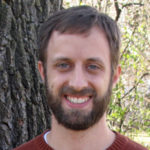A few months ago, my father-in-law, John Degnan, was diagnosed with a brain tumor. A healthy man in his late 50s who exercises several times a week, John started having trouble with his eyes not tracking normally. He went in for an MRI, which revealed a tumor on his brain stem.
In a matter of days, John had an appointment with the Director of Neurosurgical Oncology at Johns Hopkins Hospital, not far from his home, and they began discussing the earliest time he could have surgery. The physicians still didn’t know whether the tumor was malignant, but they could see it was located in a precarious position.
Given the risks involved in the surgery and the urgency for addressing the tumor, our family was conflicted between hope of healing and fear of death. Even a highly skilled doctor like this neurosurgeon couldn’t make any guarantees when going into such a delicate part of the body that controls vital functions like breathing, heartbeat, talking and swallowing. Medical technology today is amazing, but not infallible.
And so the surgery date was set with the hopes of securing my father-in-law’s health.
A Dissipating Cloud
It goes without saying that health is crucial to life. God has given us a desire to live, and the connection between faith and health is acutely relevant to my father-in-law, a devout Christian.
This human longing to stay alive stands behind TIME Magazine’s February 23, 2009, issue, “How Faith Can Heal.” Taking faith broadly to include all kinds of religious perspectives — Catholic, Protestant, Hindu, Muslim, folk — the study looks at spiritualities generally, examining what science says about their effects on health.
The lead article, “The Biology of Belief,” by Jeffrey Kluger, argues that recent scientific studies corroborate that “a little spirituality may be very good for your health” (p. 62). The piece recounts some of the biological benefits of religious practices, such as attending church weekly, which decreases a person’s chance of dying over the next eight years by half.
The piece also lays out some of the scientific debate over the impact spiritualities have on health, and Kluger explores how health providers might better serve the sick by acknowledging the potential benefit from religious practices.
But Kluger’s reporting starts with some assumptions that skew the picture of health. His perspective is rather nearsighted. As he states it, “Health, by definition, is the sine qua non [the absolutely indispensable thing] of everything else. If you’re dead, serenity is academic” (p. 62).
This charge of finality presumes that this life is all there is. The physical health Kluger refers to is only the most essential quality of existence if our lives are confined to the natural world. Such a perspective on health actually distracts from what death and sickness really alert us to — the serious questions of eternality and our relationship with the Creator.
We can ignore death for a time, but death comes to all. And Scripture prods us toward living with life’s brevity in view, as Isa. 40:6b–7 so aptly captures:
All flesh is grass,
And all its beauty is like the flower of the field.
The grass withers, the flower fades
When the breath of the LORD blows on it;
Surely the people are grass (ESV).
Instead, Kluger’s orientation to this world colors his conclusions. If spirituality might help people get better or stay healthier, he says, then by all means do it! His all-encompassing “spirituality” deflects any questions about truth, because in the end, it doesn’t really matter what religion a person practices, as long as it improves his or her health. By making health most essential, pragmatism trumps doctrine.
Kluger explains that “the point of all this isn’t so much what the modality [of religion] is; it’s that the patient has a chance to find one that works” (72). Such pragmatic thinking is brought to its natural conclusion in the article’s closing line: “It’s the result, not the source, that counts the most” (72).
The fallacy here is that the result ultimately depends on the source. The source determines the result, and thus the source matters most. The nature of one’s spirituality and theology makes all the difference in the long view of eternal health.
That Which Is Truly Life
The prophet Isaiah continues in Isa. 40:8 with a striking contrast: While we are but withering grass, “the word of our God will stand forever.” Centuries later, after the resurrection of Jesus, the apostle Peter quoted this passage and expounded on it, noting that “this word is the good news that was preached to you,” the gospel of Jesus Christ (1 Peter 1:25). And through “the living and abiding word of God,” Peter explains, we have been “born again, not of perishable seed, but of imperishable” (1 Peter 1:23).
The world grasps after temporal health, and while taking care of our bodies is both good and honoring to God, physical health in this world shouldn’t consume Christians. Rather, with Isaiah and Peter, we have a sure foundation in the undying word of God and the “imperishable seed” we receive from the Son of God who himself overcame and abolished death.
If our temporal lives are like a dissipating cloud, then eternal life is like a rock resisting earth’s eroding forces. But metaphors for eternal life always fail. Nothing in this world lasts forever. Life forms die. Matter disintegrates. Even rocks wear down over time.
Eternal life is best viewed in the resurrected body of Christ, which will never taste death again. Health in this world is temporary at best. Our longing for health really points to a longing for eternal life. We want to stay alive forever.
In his first letter to his young protégé Timothy, Paul instructs him how to guide those who are “rich in this present age” — another distraction from life-or-death issues. He warns them not to “set their hopes on the uncertainty of riches, but on God,” and he charges them to be generous, “thus storing up treasure for themselves as a good foundation for the future.” The purpose in this eternal perspective is “so that they may take hold of that which is truly life” (1 Tim. 6:17–19).
Health in this world is not “truly life.” It is merely postponed death. That which is truly life vanquishes fear of death because its life comes from the one “who alone has immortality” (1 Tim. 6:16).
Facing Death
I’ve watched my father-in-law as he has dealt with the diagnosis of a brain tumor. There have been difficult moments, solemn questions, and a surfacing of deep emotions. But the emotion I consistently saw was love — love for his wife, love for his children and grandchildren, love for God.
For many people, the question that arises is, “Why, God?” John clung instead to passages like Hab. 3:17–19:
Though the fig tree should not blossom,
nor fruit be on the vines,
the produce of the olive fail
and the fields yield no food,
the flock be cut off from the fold
and there be no herd in the stalls,
yet I will rejoice in the LORD;
I will take joy in the God of my salvation.
GOD, the Lord, is my strength;
he makes my feet like the deer’s;
he makes me tread on my high places.
My father-in-law chose not to blame God, but to praise and trust God. In the weeks leading up to the surgery, he rested in the knowledge that “the Lord knows the number of my days.” When I asked him the day before the surgery if he was ready, he said, “You come to a point where you just have to put yourself in God’s hands.”
John has embodied the thinking that places its hope on the sure foundation that lies beyond this world, anticipating the “kingdom that cannot be shaken” (Heb. 13:28). He joins the likes of Abraham who by faith lived in tents in the land of promise because “he was looking forward to the city that has foundations, whose designer and builder is God” (Heb. 11:10).
He understands that God never promised we wouldn’t face pain or death. Jesus himself suffered agonizing pain and death. In Christ’s overcoming death we find freedom from fear and hope of life. And that resurrection hope steadied John as he prepared for surgery.
When the day came, the neurosurgeon cut a six-inch incision on the back of my father-in-law’s head and took a small biopsy of the tumor. The initial report indicated no clear trace of cancer, so he left the tumor almost intact. Taking any more of it would have cost John other critical functions.
A later fuller report of the biopsy determined the tumor is grade two cancer, though also a slow-growing mass. As a result of the surgery, John now has double vision and battles disequilibrium, both of which may be temporary or permanent — only time will tell.
Still, after the surgery, the first time we all as a family stood in his room after he left intensive care, my father-in-law prayed and thanked God for his goodness. And he praised the Lord not that his faith would necessarily heal him, the focal point of Kluger’s article, but that God would use the challenges ahead to mold him into the likeness of Christ. In a reversal of Kluger, John prioritizes truth over pragmatism.
Today, after the surgery and in the midst of physical therapy, John continues to entrust himself to the Lord. He recently said to me, “As you walk through these things, God gives you the grace.” And he puts his future in God’s hands: “Although God is sovereign and can heal me, His peace is very real, regardless of the outcome.”
These are not the words of a man who feels abandoned by God, but of one who believes and hopes in God’s power and faithfulness. Like the psalmist, he trusts in God’s providence and sovereign plan: “But I trust in you, O LORD; I say, ‘You are my God.’ My times are in your hand” (Psa. 31:14–15a).
The danger is not over for John. He still has a malignant tumor on his brain stem. Yet while John lives in the uncertainty of what may come — a tumor that could risk other functions or grow — he also lives in the solid faith of what is to come, the blessed appearing of our great God and Savior Jesus Christ and the imperishable life he will give us by his unmatchable grace. That is truly staying alive.
Copyright 2009 David Barshinger. All rights reserved.











